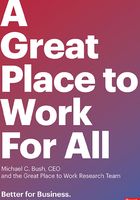
What a Difference 20 Years Make
Whether Uber’s culture flaws, scandals, and executive shake-up amounted to minor potholes or an insurmountable roadblock remained to be seen as of mid-2017. But the company’s valuation undoubtedly backtracked amid all the trouble. And the very fact that it careened so wildly speaks to the way the business world has changed in the past two decades.
Think back 20 years, and one can imagine Uber zooming smoothly past most or all of its recent troubles. Back then, consumers were less concerned with the ethics and politics of the companies in their lives. There were no social media networks where a company protest could catch fire so quickly. The Internet wasn’t yet a platform for giving any unhappy employee a forum to publish their views to the world. Nor had a culture of self-expression emerged—one that is intertwined with the millennial generation’s demand for a meaningful, positive purpose and a growing willingness on the part of people to leave a job if the company doesn’t match their values.
Put simply, dramatic societal and technological changes are creating new challenges for organizations as they seek to attract the best talent as well as win over customers. The days of unreformed “bad-boy” CEOs are numbered. Rapidly changing competitive landscapes are putting a premium on agility and redefining what it looks like. The need for decentralized decision making increases the importance of getting the best from everyone. Also making people issues more crucial is a shift to an economy where essential human qualities such as passion, collaboration, and creativity are vital to business success.
In effect, we have entered a new business frontier. This chapter maps how the landscape has shifted thanks to social and technology changes. It explains why business must change to succeed, and shows that what was good enough to be “great” 10 or 20 years ago is not good enough now.